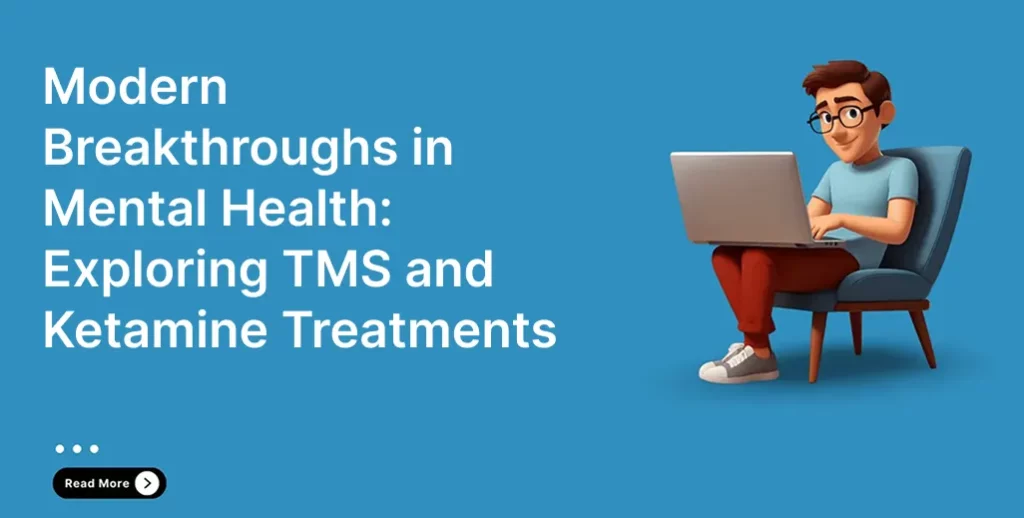If you’re looking for Mediterranean luxury, Marbella’s hard to beat....

For millions struggling with depression, anxiety, or PTSD, traditional medications and talk therapy don’t always provide lasting relief. In recent years, however, science has ushered in a new era of mental health care; one focused on personalized, neuroscience-based solutions that address the brain directly. Among the most promising of these new therapies are Transcranial Magnetic Stimulation (TMS) and Ketamine treatments, two options helping patients reclaim their quality of life after years of frustration.
Mental health care has evolved significantly over the last decade. Clinicians now recognize that a one-size-fits-all approach doesn’t work for everyone. People with treatment-resistant depression, for instance, often cycle through multiple medications and counseling methods without success.
That’s where innovative, noninvasive treatments come into play. These emerging therapies use advanced science to target the brain’s chemistry and circuitry; offering real hope when conventional options fall short. To explore how these solutions are changing the landscape of care, you can click here for additional insights from mental health professionals.
TMS Therapy is an FDA-approved, noninvasive procedure that uses magnetic fields to stimulate nerve cells in specific regions of the brain associated with mood regulation. Unlike medications that influence the brain chemically, TMS acts directly on the neural pathways themselves, helping to “rewire” brain activity.
A key benefit of TMS is its precision and minimal side effects. Patients remain awake during sessions, which typically last about 20 minutes, and can return to work or daily activities immediately after. Many individuals start to feel improvement within a few weeks of treatment, often reporting reduced depressive symptoms, better focus, and improved emotional balance.
Studies continue to show that TMS provides long-term relief for many who have exhausted traditional antidepressant options. By targeting the source rather than the symptoms, it represents one of the most significant developments in modern psychiatry.
While TMS focuses on brain stimulation, Ketamine therapy takes a biochemical approach. Originally used as an anesthetic, Ketamine has proven remarkably effective in rapidly reducing symptoms of depression, anxiety, and PTSD, especially for those who haven’t responded to other treatments.
Unlike antidepressants that may take weeks to work, Ketamine can lift mood within hours of administration. It works by activating glutamate receptors and promoting neuroplasticity, the brain’s ability to form new connections. This process helps “reset” neural pathways involved in emotional regulation.
For individuals stuck in a cycle of hopelessness, Ketamine therapy can serve as a crucial turning point, restoring motivation and emotional stability in a fraction of the time required by traditional methods.
Both TMS and Ketamine therapies have demonstrated impressive results in clinical studies, but they differ in method, duration, and patient experience. TMS is generally performed daily over several weeks, offering a steady improvement curve with lasting outcomes. Ketamine, on the other hand, is typically administered in fewer sessions, with effects that can be felt much faster.
Each treatment has its advantages, and a mental health professional can help determine which approach or combination best suits an individual’s condition. Some clinics, like Village TMS, are experts in both options, and can help guide you through what would work best for you, since factors such as medical history, severity of symptoms, and past treatment responses play key roles in this decision.
The journey toward mental wellness looks different for everyone, but emerging technologies are proving that lasting change is possible. TMS and Ketamine therapies exemplify how science and compassion can work together to restore balance, clarity, and purpose. If you or someone you love has struggled to find relief through traditional treatments, now may be the time to explore what the next generation of mental health care has to offer.
For detailed information about local treatment centers offering innovative care approaches, visit https://village-tms.com/.
If you’re looking for Mediterranean luxury, Marbella’s hard to beat....
The digital landscape evolves quickly, and attention is harder to...
For decades, elevator design and traffic management relied heavily on...
Modern architecture is reaching new heights, literally. As buildings grow...